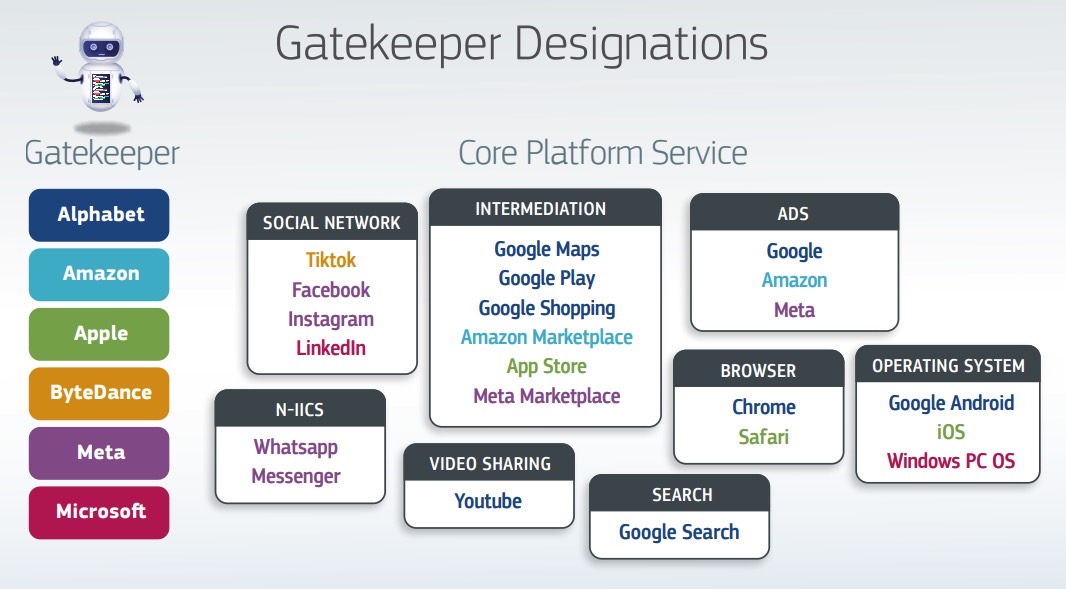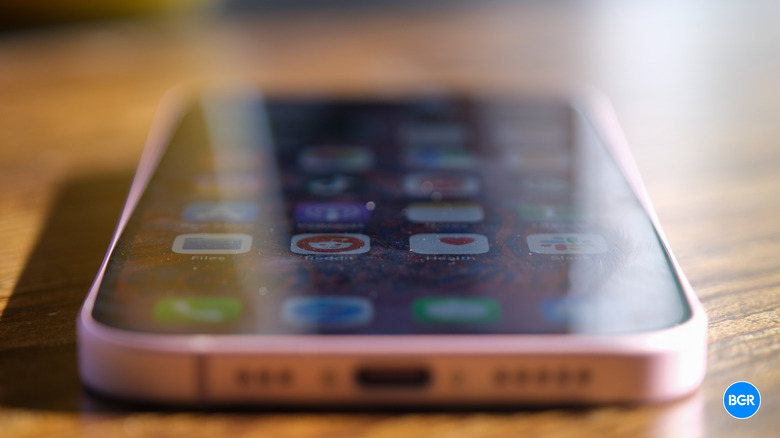The People Who Ruined The iPhone In Europe Will No Longer Be In Office
Apple's iPhone 16 lineup went up for preorder this past weekend, and several models were sold out within the first few hours. I haven't ordered my new iPhone 16 yet, even though I've always preordered as soon as possible before now. The reason I'm not in a hurry is because of the region where I'm buying the iPhone: Europe.
Apple Intelligence is one of the key features I want to try on the iPhone. It's coming to the US and other markets in October. But it won't be available in the EU for quite a while. Local laws, including the Digital Markets Act (DMA) and Digital Services Act (DSA), might explain why Apple is more cautious about rolling out Apple Intelligence in the region. Apple's AI is coming to Europe at some point, and that much is certain. But it'll take even longer than it will in the US.
It's not just the iPhone that the EU's political agenda ruined for me. OpenAI's ChatGPT took longer to arrive in the region. Bing Chat, based on ChatGTP, also needed longer to launch in the EU. The same goes for Google's AI initiatives, starting with Bard and ending with Gemini. Even simpler apps like Meta's X rival Threads took longer to launch in Europe.
Fast-forward to Monday and Thierry Breton announced his resignation from the European Commission (EC), but not before attacking EC's Ursula von der Leyen in an open letter. Breton is one of the two prominent figures who promoted the DMA and DSA laws, looking to regulate Big Tech companies in the region.
The other is Margrethe Vestager, who stepped down from the EC's vice-presidency position under more amicable terms. She chose to run for the European Investment Bank (EIB) presidency, a race she eventually lost. She resumed her European Commissioner for Competition duties but will leave the role by November.
However, I don't expect big changes now that the two biggest proponents of Big Tech regulation in Europe have (almost) left their EC positions. If any big changes are going to happen, they'll take at least a few years.
Vestager was appointed as European Commissioner for Competition in late 2014. She became the EC's Executive Vice-President in late 2019 while keeping her previous EC position. She left the position in August 2023, when she pursued the EIB presidency. That was ahead of the mid-2024 EU parliamentary elections.
Breton was France's nomination for the European Commissioner for Internal Market position in late 2019. It came just a few months after von der Leyen was elected President of the European Commission by the European Parliament (EP).
The EC proposed the DMA and DSA laws in late 2020. In early 2021, the EC also looked at turning the USB-C port into the standard charging port for electronic devices sold in the region. Then, in 2022, the EP agreed on new battery regulations governing battery-powered products sold in the EU.
The EP voted overwhelmingly for these four initiatives from July to December 2022. The laws saw support between 86.5% and 96%, which should tell you that the EU isn't about to rethink these policies in the near term.
Breton played a key role in all these legislations. Vestager was also a key official for the DMA and DSA, as well as enforcing the proposed laws, particularly the antitrust aspects.
I would like to express my deepest gratitude to my colleagues in the College, Commission services, MEPs, Member States, and my team.
Together, we have worked tirelessly to advance an ambitious EU agenda.
It has been an honour & privilege to serve the common European interest🇪🇺 pic.twitter.com/wQ4eeHUnYu
— Thierry Breton (@ThierryBreton) September 16, 2024
That's why Breton's resignation on Monday is especially important for the tech sector in Europe. His letter, posted on X, indicates disagreements between Paris and Brussels. According to Breton, Ursula von der Leyen asked President Macron to withdraw his name "for personal reasons" that the President of the European Commission never discussed with him.
It's unclear what these reasons were. Von der Leyen reportedly offered Macron "an allegedly more influenctial portfolio for France in the upcoming Commission."
Reports say that von der Leyen wants a gender-balanced College of Commissioners. This could explain her request to France. Also, as as Politico remarks, Breton and von der Leyen have repeatedly clashed in public and privately over the last five years.
Regardless of why von der Leyen wanted Bretton gone, as a longtime iPhone owner, I'm cautiously optimistic. It might signal a super tiny wave of change, but a wave nonetheless. I don't expect the EU to repel the DMA and DSA, nor do I think these laws should go away.
The USB-C and battery laws have a place in the current landscape. They could help reduce waste and increase innovation, particularly on the battery side of things.

Also, remember that the EU ordered Apple to pay $14 billion in unpaid taxes a day after the iPhone 16 was introduced. Earlier this year, the EU fined Apple $2 billion in a Spotify antitrust case. Similarly, Google got multi-billion fines in the region in the past decade.
But von der Leyen's new Commissioners might take a different approach to implementing the new regulations, especially the DMA and DSA. They might be more in line with von der Leyen's tone. It's unclear who will replace Breton and Vestager come early November.
Von der Leyen has been less aggressive, though she supports all the new tech-related laws the EU has passed in recent years. Her political agenda might improve relations between the US and the EU, particularly on the tech side, while ensuring the EU's opinions on technological independence, competition fairness, and free speech are heard.
In practice, I expect Apple to have a slightly easier time adding new features to the iPhone 16 I end up buying, whether it's Apple Intelligence or something else. The same goes for other US Big Tech companies that must comply with the DMA and DSA.
But I don't see these laws going away. Put differently, iPhone sideloading is here to stay, at least in the EU, no matter what the new European Commission looks like.
